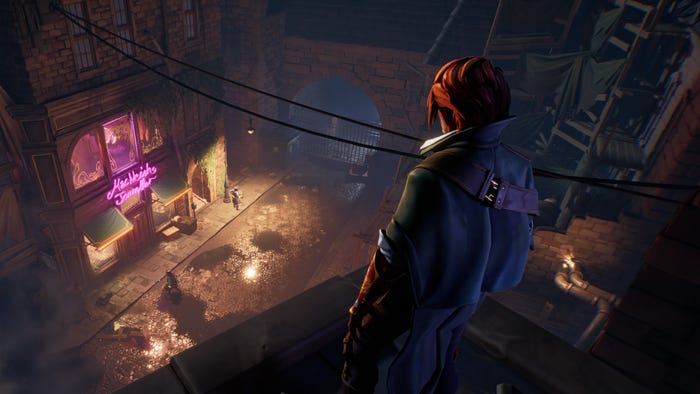Most "serious games" exist for some other purpose than to be played, says scholar and designer Ian Bogost, suggesting at 2013's Games for Change that earnestness, not seriousness, is what's needed.

Where have games for change -- "or serious games, or whatever you want to call them," in the words of Persuasive Games author, academic and game designer Ian Bogost -- gone wrong? That was the topic of Bogost's talk at the 2013 Games for Change conference in New York City, attended by Gamasutra. "Real systems thinking assumes that simple answers are always wrong, but games for change, or serious games, are often prevented as superficially transformative affairs," he suggests. For example, Molleindustria's Oiligarchy, which aims to explore issues of peak oil and the global petroleum industry through games, raised an interesting question for Bogost when colleague Paolo Pedercini, the game's creator, provided an online postmortem of the game. With text and images, Pedercini devised an explanation of the themes he attempted to represent through the game. "For him, this postmortem is necessary because it would increase the game's transparency, make it more journalistic, and allow the intention he had as a creator to shine through," Bogost explains. But there's a flip side, there: If Oiligarchy can't do the work of talking about oil, and the supposedly-outmoded medium of text and image are necessary or better, then why make games like Oiligarchy in the first place? "It risks becoming an aesthetic exercise," Bogost says, "a jaunty cap atop the normal, real media people actually take seriously." He describes his own Fatworld project, designed to explore problems with the food industry, nutrition and obesity, as a terrible game. Yet the U.S. Government's Apps for Healthy Kids project has been enormously successful despite being similarly, in his view, aesthetically offensive and poorly designed from the standpoint of game quality. This is because "it's functioning on a different rhetorical register," Bogost says. "It's not trying to make an argument about how something works; it's intended to give you the idea that we are working on a problem. It's the White House trying to be 'technological' in the app age." When it comes to projects like this, the idea often seems more important than the games, he worries. "When people talk about 'changing the world with games,' in addition to checking for your wallet, perhaps you should also check to see if there are any games involved in those world changing games, or the concept of an unrealized potential we might someday meet." "The dirty truth about most of these serious games, the one that nobody wants to talk about in public, is they're not really that concerned about being games," Bogost adds. "This is mostly because games are hip, they make appealing peaks in your grant application, they offer new terrain, undiscovered country, they give us new reasons to pursue existing programs in order to keep them running." Most serious games are no more used for gameplay than Marcel Duchamp's "Fountain" (the famous contextualized urinal) is used to urinate in, he suggests. More valuable to the cultural impact argument would be games that really want to be games, and that genuinely want to pursue the subjects they claim to pursue, that do not exist primarily to attain attention, secure lectures or book grants. "Maybe what we want are not 'serious' games, but earnest games," he reflects. "Games that aren't just instrumental or opportunistic in their intentions." For example, games like Papers, Please, Cart Life or Dys4ia were made to be played and to illuminate the subjects that their creators wanted to make games about. "It's actually a little weird to talk about using games for social change or seriousness in the abstract," he says. "We don't talk about other media that way. We just kind of assume it's possible: I want to make a film about something, I figure out a way to make a film about the thing I want to make a game about." "Ten years hence, I don't know if we need 'games for change' as frames; I don't know if they're useful anymore," Bogost adds. "I think we want something like 'earnest games,' games that really mean it, games that aspire to do justice to their topic and to the medium of games themselves. These are games that we really want to play, that we can play more than once and that still put a lump in our throats. They stop us short because what we really found in them, not what we read about them." "They do it because their creators were generous enough to want to speak to us, but went to the stupid, improbable, absurd lengths of building these rusty machines that are games, and offering that to us instead. We play not because they make good headlines, but because they meant it. Let's make those games instead."
About the Author(s)
You May Also Like









